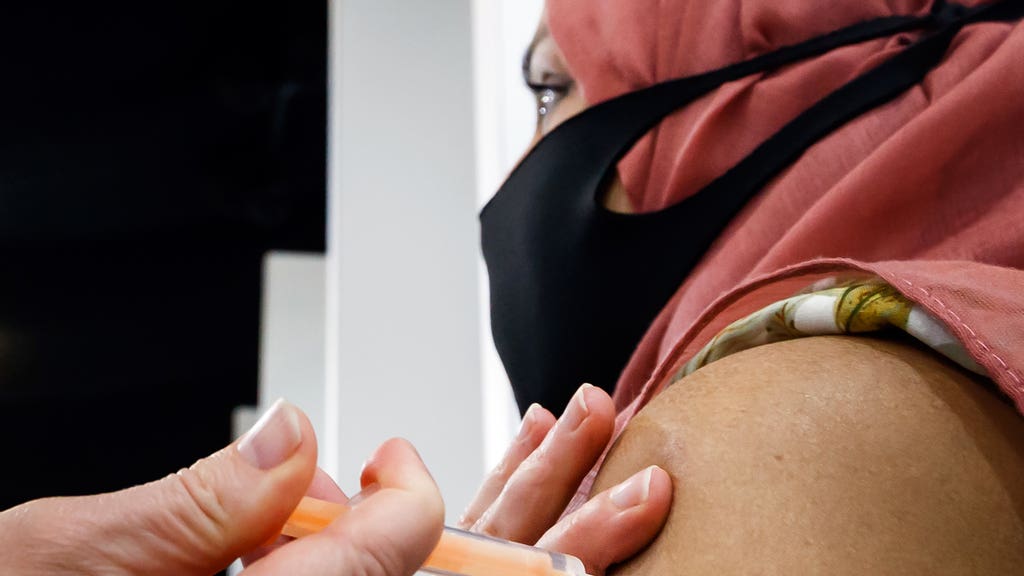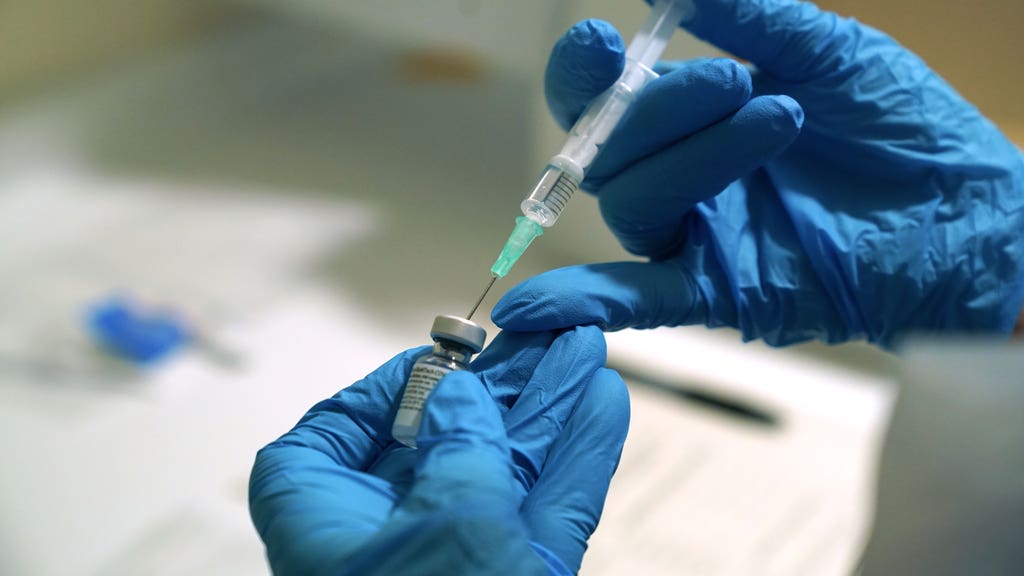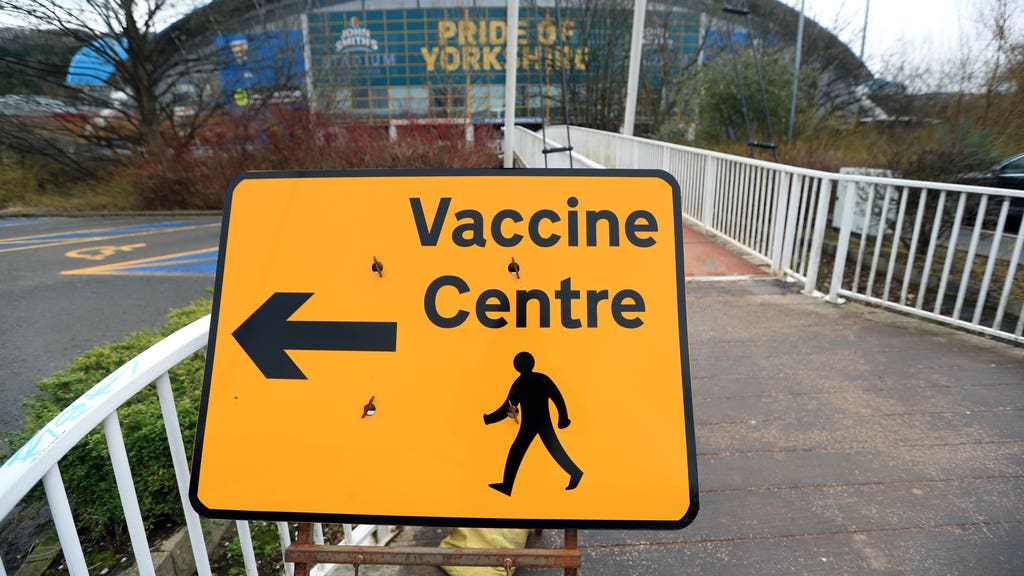Covid-19: Experts accuse Government of ‘abandoning’ ethnic minorities during pandemic
‘Rather than having learnt from all that’s happened in the last year and a half, the government has gone the other way’ says independent SAGE expert

Your support helps us to tell the story
From reproductive rights to climate change to Big Tech, The Independent is on the ground when the story is developing. Whether it's investigating the financials of Elon Musk's pro-Trump PAC or producing our latest documentary, 'The A Word', which shines a light on the American women fighting for reproductive rights, we know how important it is to parse out the facts from the messaging.
At such a critical moment in US history, we need reporters on the ground. Your donation allows us to keep sending journalists to speak to both sides of the story.
The Independent is trusted by Americans across the entire political spectrum. And unlike many other quality news outlets, we choose not to lock Americans out of our reporting and analysis with paywalls. We believe quality journalism should be available to everyone, paid for by those who can afford it.
Your support makes all the difference.A number of experts and equality groups have accused the government of failing to protect high-risk ethnic minority groups during the Covid-19 pandemic while rates of vaccine hesitancy continue to grow among parts of these communities.
The latest figure for hesitancy among Black or Black British adults is 21 per cent, according to the Office for National Statistics — an increase on previous figures — while among white adults it remains at four per cent.
Hesitancy is also higher for adults identifying as Muslim (14 per cent) or “other” (14 per cent) for their religion, compared with adults who identify as Christian (4 per cent).
Mistrust in Government and healthcare systems have been cited as key reasons for hesitancy while a recent study by University College London University College London suggested the importance of addressing racial discrimination more broadly in order to increase vaccine uptake amongst ethnic minority adults.
Currently, people from these communities account for the highest proportion of intensive care patients since pandemic began, according to the latest data from the Intensive Care National Audit and Research Centre, while Covid safety measures were scrapped by the Government last month.
Dr Zubaida Haque, a member of Independent SAGE, told The Independent that ministers have done little to mitigate the risks facing many despite extensive research highlighting the problems.
“It’s almost a quadruple whammy - minority ethnic communities are more overexposed because of their circumstances, less protected in that they’re less likely to take up the vaccine because their fears and concerns are not being robustly addressed, then we’ve got higher infection rates and few mitigations,” she said.

“So, this is a perfect storm of factors for things to get much worse for these communities - and I fear for them. We’re heading into autumn and winter where we’re expecting cases to increase because more people will be indoors.”
“It is clear that it has a mass infection strategy but it’s just so reckless because it will undermine the only thing we have that’ll get us out of this pandemic - the vaccination programme,” she said.
The former Runnymede director added: “The vulnerable are more exposed than they’ve been in this entire pandemic and they’ve been abandoned. That includes ethnic minority communities. But rather than having learnt from all that’s happened in the last year and a half, the Government has gone the other way and they’ve just given up and abandoned those communities.”
The government must now bring down community cases, Dr Haque urged, as well as reinstate the public health protection measures that are scientifically proven to work including face masks, physical distancing and contact tracing.
Soloman Campbell, 40, from Manchester, said his reasons for not having the cov jab include mistrust of government, wariness of longstanding inequalities in the health system and a desire to look to his Christian faith for a solution.
“All my life, the British Government has never prioritised the wellbeing of Black people as the pandemic of racism plagues the lives of my people but, all of a sudden, I’m to believe that it has my best interests at heart, as a Black man? I have difficulty with that,” he said.
“I’m not interested in being a guinea pig. I’m not saying I’ll not ever take the vaccine but, right now, I’d rather put my trust in God who has ultimate control over my life and watch the outcome of this roll-out.”
Beverley Watson, 60, from south London, said: “Not enough information has been shared with me, and people who look like me, about this vaccine, how it works and how safe it is. I read something about celebrities encouraging uptake but no one’s come to talk to me about it, there’s been no concerted effort to get the message across; meanwhile, I’m not going to get the injection, with God knows what in it, just because Boris said to! He can’t help me if I keel over.”

Echoing these concerns, Dr Wanda Wyporska, Executive Director at The Equality Trust, told The Independent: “The Government needs to support more community engagement, but also needs to fundamentally address the reasons why so many of us lack trust in the authorities. Until this is addressed we will continue to see poor take-up.
“The structural inequalities that see many in poor and crowded housing, in low paid, precarious public facing jobs and with a range of underlying health conditions make protection against Covid-19 an urgent priority.”
A Department of Health and Social Care spokesperson said: “The phenomenal vaccine rollout is building a wall of defence across the country, with almost nine in ten people aged 16 and over in the UK having received one dose and over 105,000 lives and 143,000 hospitalisations prevented.
“The government and the NHS are working hard to encourage people in all communities to come forward and accept the offer of a jab. We have opened up pop-up vaccination centres in mosques, translated vaccination materials into 13 languages, and partnered with local authorities, faith groups and celebrities to communicate the benefits of vaccination.”
However, the fact that hesitancy has not shifted very much among some groups reflects that ministers are not addressing the issue enough, it has been argued.
“The topic of vaccine hesitancy is often approached in a very piecemeal, ad-hoc manner where it’s not joined up or part of a wider strategy that addresses the matter,” Dr Haque said.
“And it’s not just a Black, Asian or eastern European issue; it’s also an issue in deprived areas, it’s an issue among women and younger groups. So the fact that we don’t have a national strategy to address hesitancy is wholly inadequate.”
In the meantime, some local campaigners are taking matters into their own hands by spearheading initiatives around the country to counter fears among the hesitant.
This includes pop-up vaccination clinics in trusted community spaces such as the Black Cultural Archives in Brixton, South London Islamic Centre in Streatham and Stockport‘s St Petersgate fountain.
Join our commenting forum
Join thought-provoking conversations, follow other Independent readers and see their replies
Comments